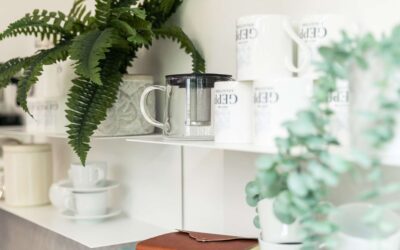On Thursday 27th February we were privileged to jointly sponsor a talk at the Essex Agricultural Society with Strutt & Parker by Lt Col (Retd) Giles Stibbe OBE, the Director of the Household Cavalry Foundation talk to us about the Household Cavalry Regiment.
The Household Cavalry Foundation is the official charity of the Household Cavalry and supports serving soldiers, veterans and their dependants. It has a focus on their heritage and supports the welfare of their retired horses.
The evening was a "canter" through the history of the oldest regiment in the British Army.
Formed from a Royalist Cavalry Bodyguard, the Life Guards were acknowledged as the Monarch's personal bodyguard in 1660 when Charles II was restored to the throne. Since then they have fought in every major British Army campaign. Giles' presentation was full of fascinating facts and peppered with amusing anecdotes. We learned that the regiment has a tradition of saluting without headdress (which is frowned upon in the rest of the Army!).
This was as a result of the Marquis of Granby leading a charge of the Royal Horse Guards at the Battle of Warburg in 1760 when his wig blew off. If you ever wondered why there were so many pubs called by the same name it is because he gave each of his soldiers a lump sum on retirement so long as they opened a pub and called it after him.
Weaving in between the discussion of their military prowess were fascinating snippets about their horses. It appears that in the modern British Army we now have twice as many horses as we have tanks and Giles made sure that we learned about the drum horses and the "short lack black Irish draft" horses (known as Cavalry Blacks) that are the backbone of the regiment. Whilst they have been gifted other longer-backed horses, the requirement to carry soldiers and officer dressed in their glistening breastplates and helmets means that they need a sturdy horse that can carry an additional 25kg of weight in addition to their riders.
The regiment travel each year to Ireland to source new horses.
Most horses are purchased when they are three or four, and are then sent to the Royal Army Veterinary Corps Depot, at Melton Mowbray in Leicestershire, from where they are forwarded to the Household Cavalry Mounted Regiment in London, for selection by squadron leaders. They are usually named after battles or significant places, and each year the new horses’ names begin with a particular letter. When a horse joins the Household Cavalry, a regimental number is stamped on its hooves. Finally, trumpeters are traditionally mounted on grey horses to contrast with the black horses used by other Household Cavalrymen; this is so they could be seen on battlefields where they would ride near their officers relaying their commands via trumpet calls.
But the Household Cavalry are also fighting soldiers and Giles took us through battles on horseback, through the First and Second World Wars to more modern conflicts. In the Falklands War they provided vital armoured support to the ground forces and were a major contributory factor in the British success. Giles commanded a squadron of tanks during the first Gulf War and his story of how Major James Hewitt's professionalism and sharp eyes made sure that disorientated British tanks were not fired upon by their own side brought home the confusion and stresses of battle faced by our Armed Forces. Bringing the story up to date he explained the regiment's role in the Balkans, Iraq and Afghanistan campaigns.
It is clear that the Household Cavalry Regiment is a tight-knit family.
Drawn from across the United Kingdom the soldiers have made their mark on history. From the founder of the Commandos to the first "C" in MI6, other famous alumni include Princes William and Harry, singer James Blunt, author Jack Higgins, comedian Tommy Cooper and footballer Jack Charlton. They have their fair share of heroes as well and Giles told us a little about Squadron Corporal Major Mick Flynn CGC MC, who is also known as Bullet Magnet. At the time of his retirement Flynn was the moist highly decorated non-commissioned officer in the Army and saw active service in Northern Ireland, the Falklands War, the Bosnian War, the Iraq War and the War in Afghanistan.
The vote of thanks was given by our CEO, Lt Col (Retd) Mike Cubbin who had worked on exercise with Giles in Egypt in 1997.


